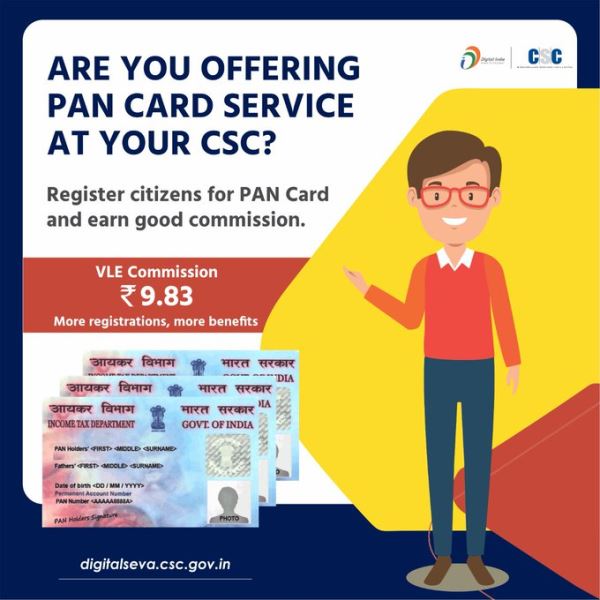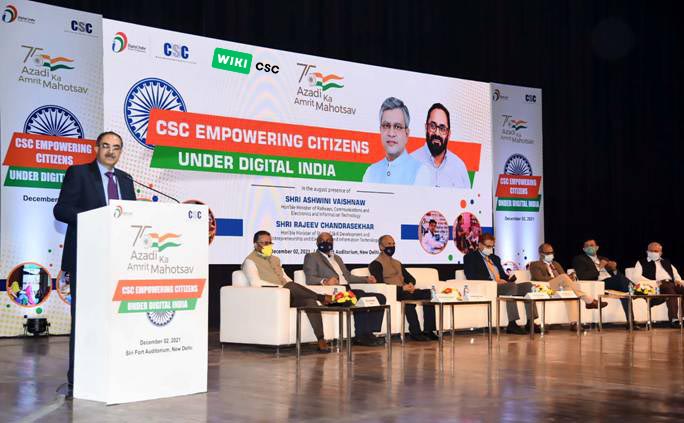The Common Service Center (CSC) initiative has launched by the Government of India to promote digital empowerment, financial inclusion, and rural development in the country. CSCs offer a wide range of services to citizens, including government and non-government services. One of the essential services offered by CSCs is PAN Card services. In this Article, talking about CSC commission for PAN Card
PAN Card is a ten-digit alphanumeric number issued by the Income Tax Department of India. PAN Card serves as an identity proof and is mandatory for financial transactions such as opening a bank account, filing income tax returns, and investing in securities. CSCs offer PAN Card services to citizens, and the commission for the same is fixed by the government.
Article – How to Start Common Service Center at Low Investment
CSC Commission for PAN Card
The commission for PAN Card services offered by CSCs is Rs. 9.00 per application. This commission is inclusive of all charges, including payment gateway charges and taxes. CSCs can offer various PAN Card-related services, such as new PAN Card application, correction or modification of PAN Card details, and reprint of PAN Card.
CSCs can charge a service fee from the applicants in addition to the commission. However, the service fee charged by CSCs for PAN Card services should not exceed the maximum prescribed limit. The maximum service fee that can be charge by CSCs for PAN Card services is Rs. 35.00 for new PAN Card applications and Rs. 10.00 for correction or modification of PAN Card details.
Article – 10 Reasons You Should be Talking About CSC
In addition to the commission and service fee, CSCs can also earn revenue from value-added services such as printing, lamination, and delivery of PAN Cards. CSCs can charge reasonable fees for value-added services as per the market rates prevailing in the locality.
CSCs have played a crucial role in bringing essential services closer to the people in rural and remote areas. The commission for PAN Card services offer by CSCs is fixed by the government to ensure that the services are affordable and accessible to all citizens, especially those living in rural and remote areas.


